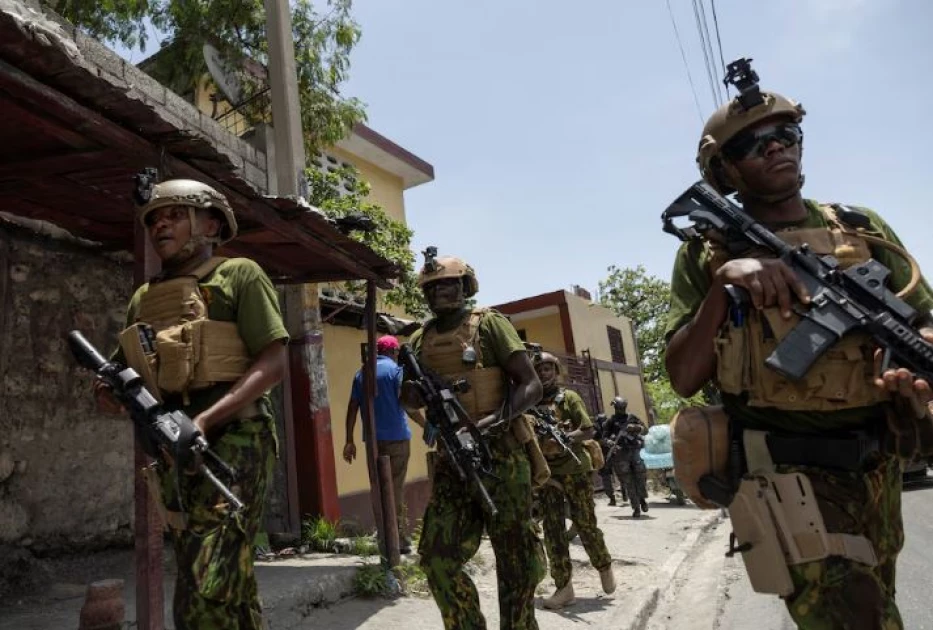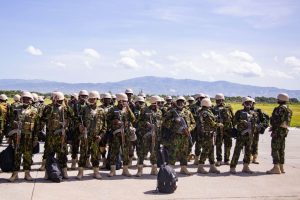Kenyan Police in Haiti Face Payment Delays in Two months
2 min read

Kenyan police officers deployed to Haiti as part of an international security force are grappling with significant payment delays, having not received their full salaries for the past two months. This issue is the latest in a series of challenges facing the multinational security support mission (MSS) in the violence-ridden Caribbean nation.
The initial contingent of Kenyan officers arrived in Haiti in June, marking the beginning of a critical international effort to stabilize the country. This mission, largely financed by the United States, now includes around 400 Kenyan officers, many from elite units specialized in high-risk operations.
On August 25, the MSS issued a statement addressing the payment delays, assuring that officers should receive the outstanding amounts within the week. “There is no cause for concern regarding the welfare of MSS officers, as the necessary procedures for disbursement have been completed,” the statement read.
Kenya’s National Police Service (NPS) released a progress report on Monday indicating that while officers have continued to receive their regular NPS salaries, they are still awaiting the additional compensation promised for their MSS duties. This supplemental pay was intended to reflect the demanding nature of their mission in Haiti, which often resembles military operations more than traditional police work. The officers are confined to their base in Port-au-Prince during off-duty hours, adding to the strain of their deployment.
Some officers have voiced their frustration, highlighting the urgency of the situation as schools in Kenya reopen. Many are struggling to cover school fees and other family expenses, exacerbating their stress. “The officers are disheartened by the delay in payments. We’ve heard that the funds have been sent to Kenya but haven’t been disbursed yet. We need assistance in resolving this issue,” one officer, who requested anonymity, said before the official statement was issued.
The MSS is planned to eventually consist of 2,500 personnel, with additional troops expected from countries including Jamaica, Benin, Chad, the Bahamas, Bangladesh, Barbados, and Belize. The mission aims to support the Haitian National Police in their fight against gangs that currently control about 85% of the Port-au-Prince metropolitan area.

The impact of gang violence in Haiti has been severe, with approximately 600,000 people displaced and around 2 million living in areas plagued by constant fear of attacks. Haitian interim Prime Minister Garry Conille highlighted these dire conditions in an early August.
Funding for the MSS comes from a UN-managed trust fund, with significant contributions from the US, Canada, France, and Spain. The United States has committed around $380 million to support the mission, primarily through the provision of equipment and other resources.
As the situation develops, both the Kenyan officers and the international community are closely monitoring the effectiveness and stability of the mission, aiming to ensure that the critical security needs of Haiti are met and that the welfare of deployed personnel is adequately addressed.